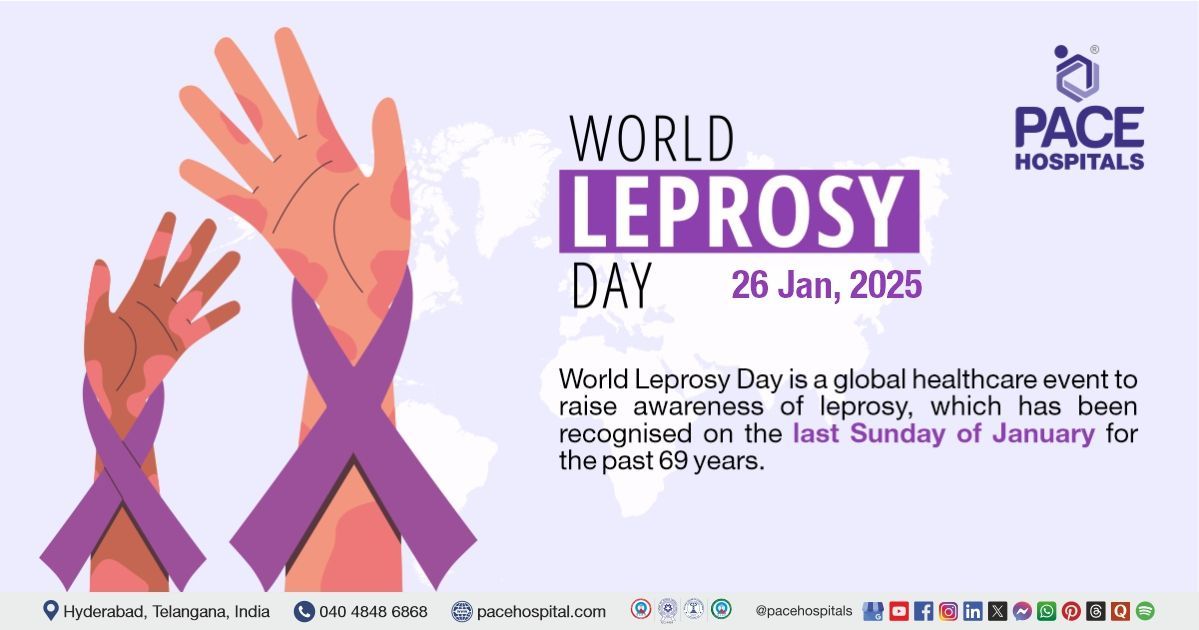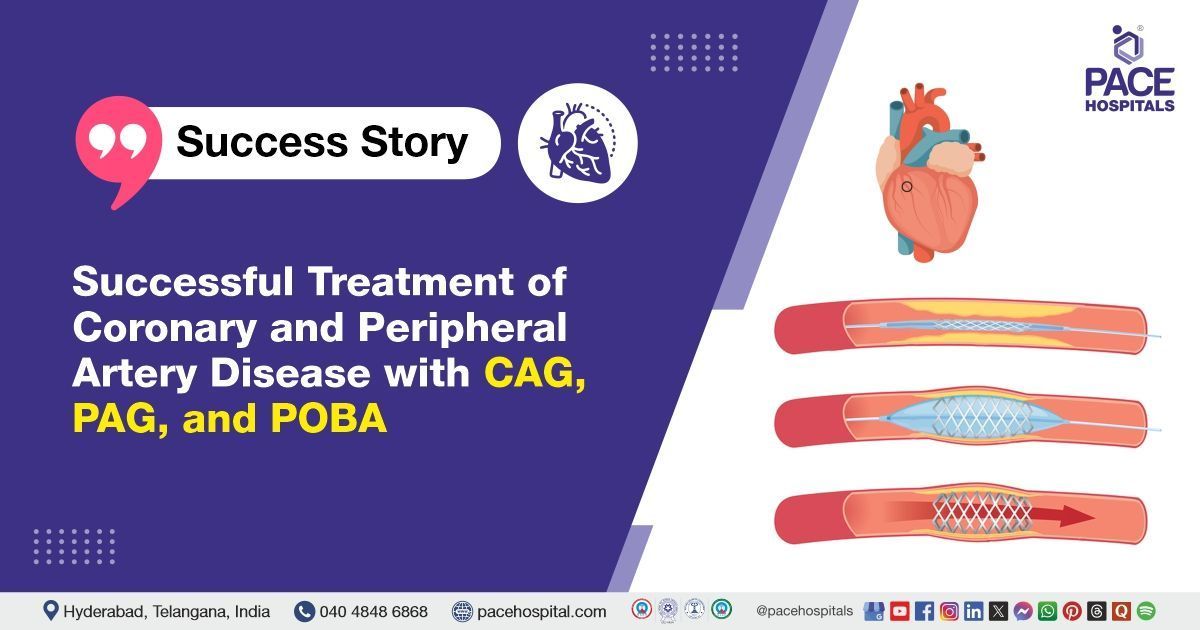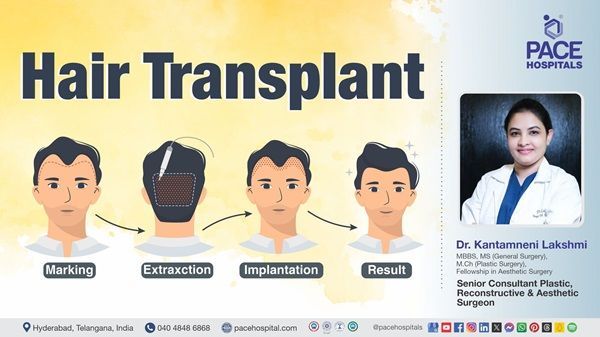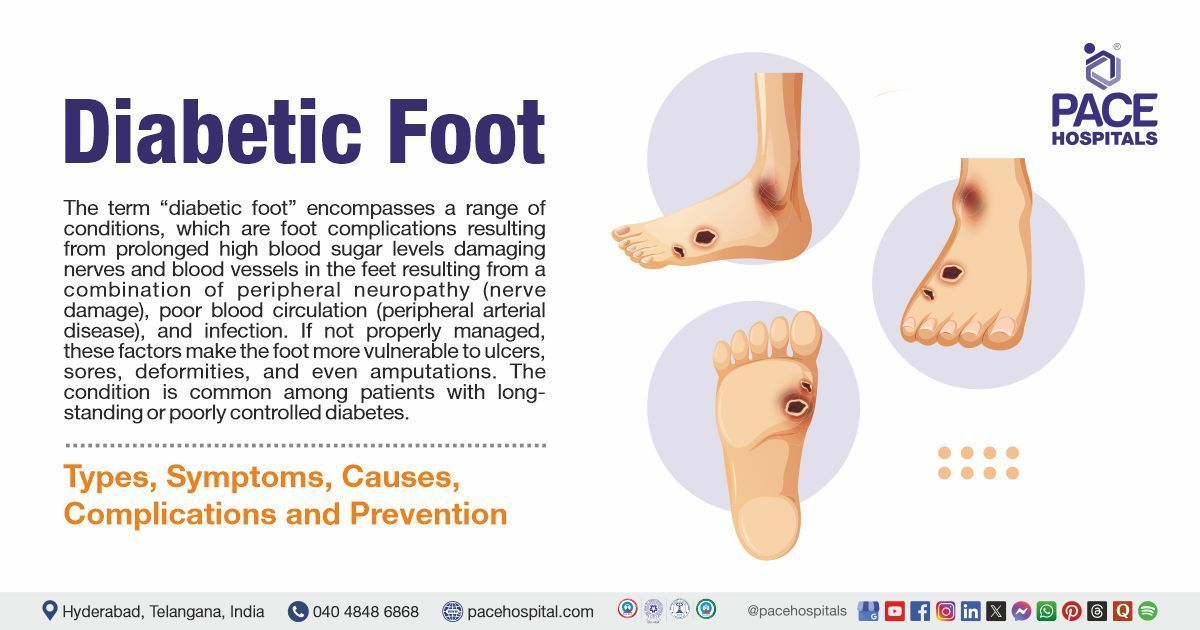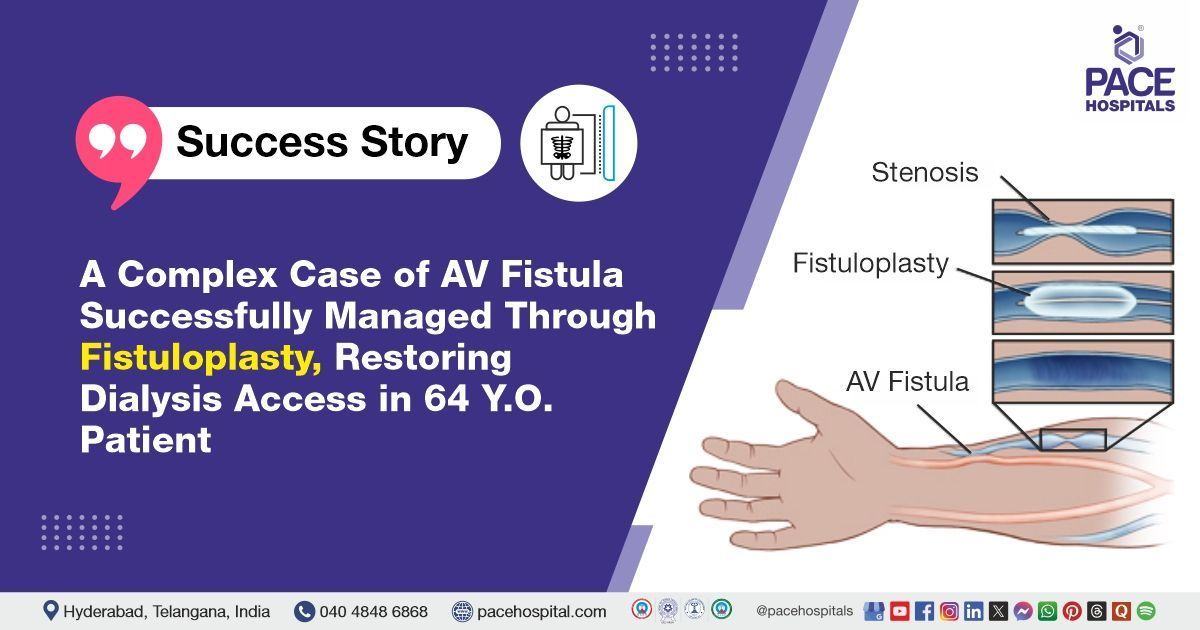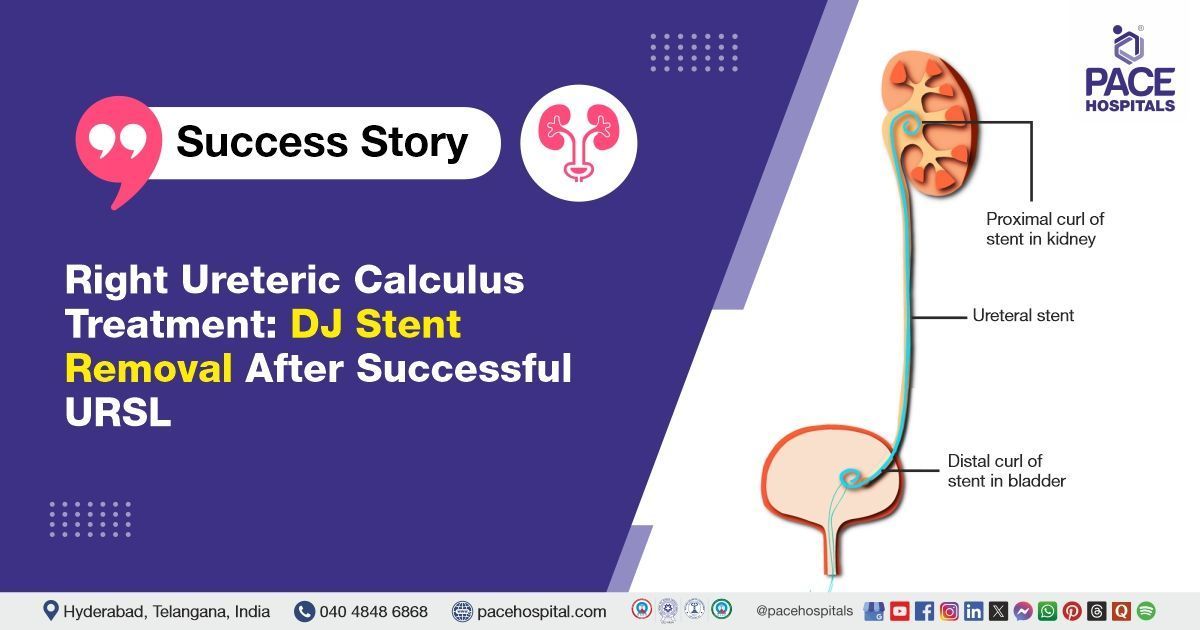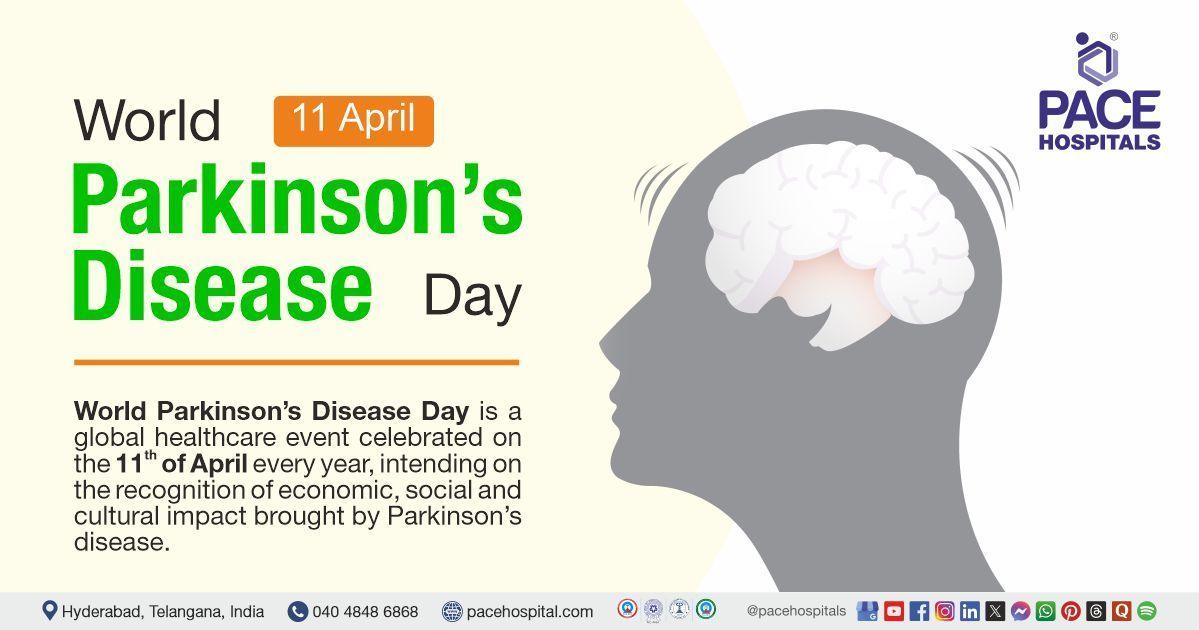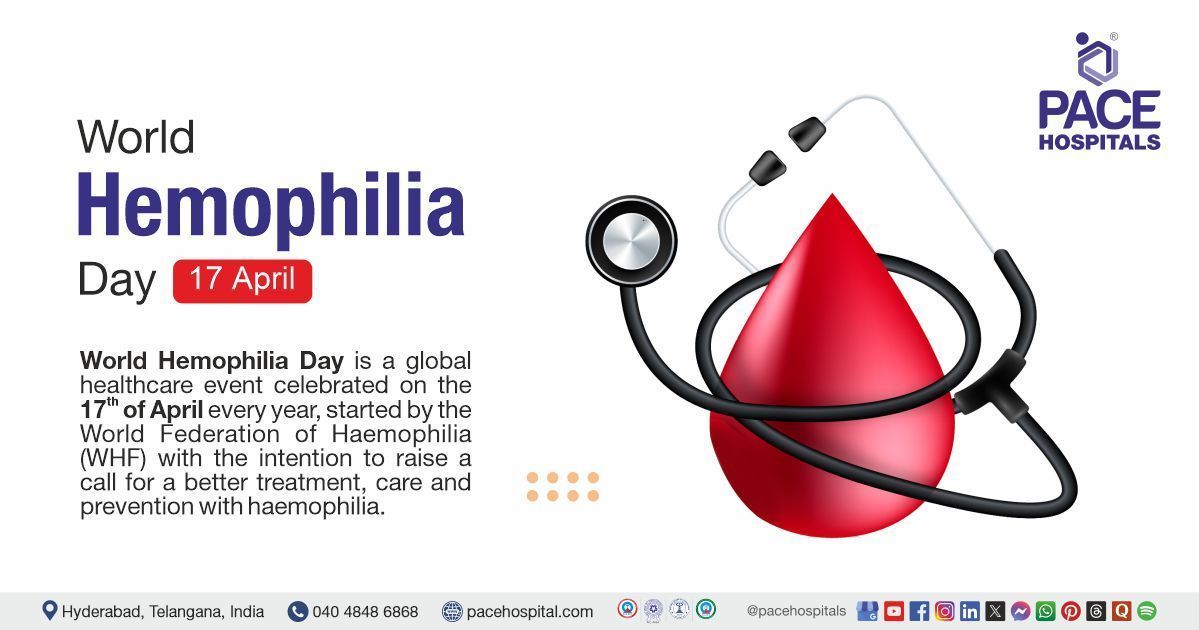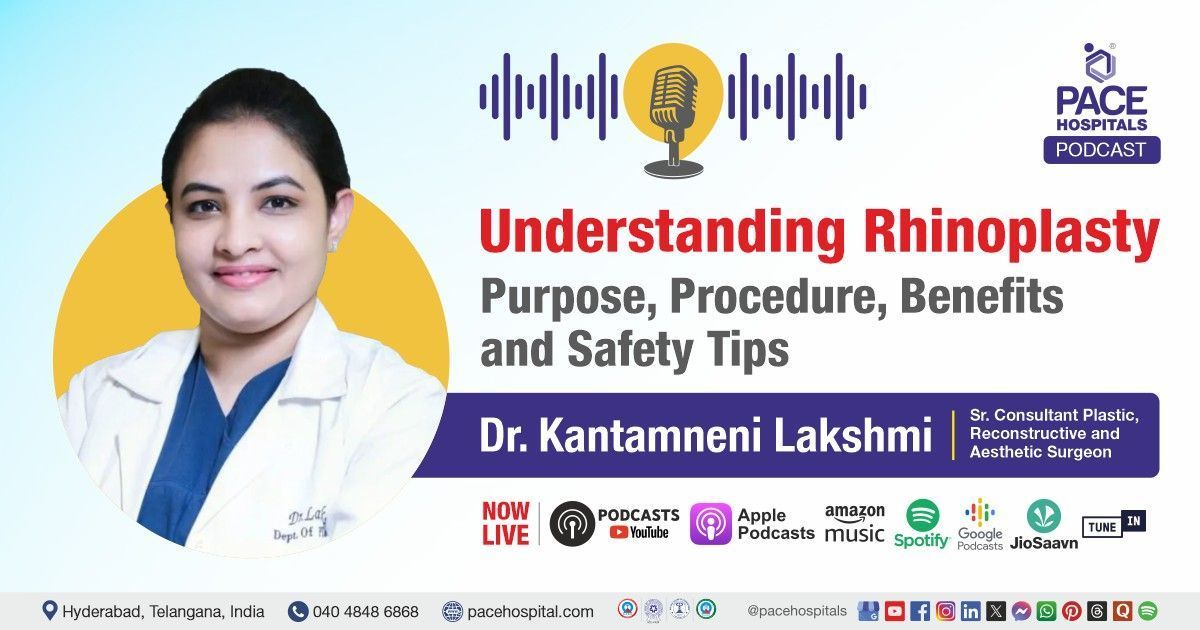World Leprosy Day, 26 January 2025 - Theme, History & Importance
World Leprosy Day (WLD) is a global healthcare event to raise awareness of leprosy, which has been recognised on the last Sunday of every January for the past 69 years. This year, World Leprosy Day 2025 is observed on 26 January, Sunday.
In India, leprosy awareness event is recognised as “Anti-Leprosy Day” which is celebrated on 30 January, Monday, on the occasion of Martyr's Day (Shaheed Diwas) because Mahatma Gandhi was committed deeply to the cause of Leprosy (Hansen's disease).
Various global and local organizations come together on this day to promote awareness campaigns and activities to spread the word that leprosy is preventable by early diagnosis, proper treatment, and adherence to the prescribed course. The goal for this day is not only to educate people about the condition, but also to bring attention to individuals affected by it.
World Leprosy Day 2025 Theme
This year, 2025, the theme of World Leprosy Day is "Unite. Act. Eliminate." This call to action aims to raise awareness of leprosy, highlight the challenges faced by persons affected by it, and inspire collaborative action to eliminate it.
Global Commitment ("Unite”): Eliminating leprosy requires a concerted struggle from all stakeholders, including governments, healthcare providers, NGOs, communities and individuals.
Immediate Action ("Act”): To interrupt transmission and eliminate the disease, Proactive measures, including public education, early diagnosis, prevention programs, prompt treatment, and empowerment of persons affected by leprosy, are essential.
A Clear Goal ("Eliminate Leprosy”): Eliminating the disease—the World Health Organization's global goal—is achievable with sustained Commitment. Current medical interventions and collaborative efforts have brought us closer, but continued investment in diagnostics, innovative treatments, and outreach is essential.
Year by year theme of World Leprosy Day (WLD):
- World Leprosy Day 2024 Theme: Beat Leprosy
- World Leprosy Day 2023 Theme: Act Now. End Leprosy
- World Leprosy Day 2022 Theme: United for Dignity
- World Leprosy Day 2021 Theme: Beat Leprosy, End Stigma and Advocate for Mental Well-Being
- World Leprosy Day 2020 Theme: Ending discrimination, stigma and prejudice, is fundamental to ending leprosy
- World Leprosy Day 2019 Theme: Ending discrimination, stigma, and prejudice
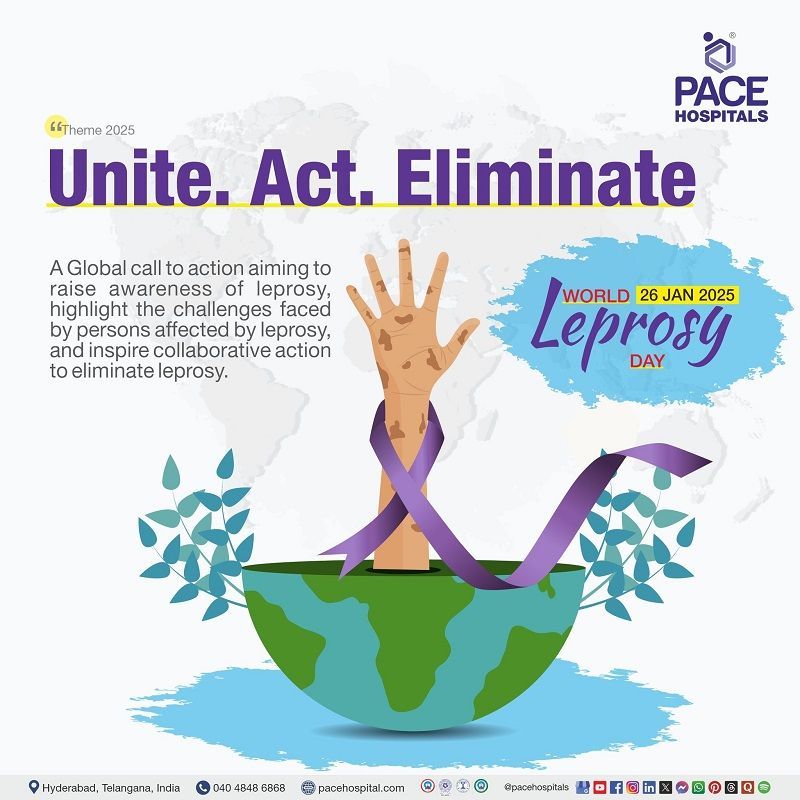
Importance of World Leprosy Day
Although the World Health Organization (WHO) declared leprosy as an "eliminated" global public health problem in 2005, over 2 lakh new cases are recorded each year all over the world. In the year 2021, leprosy had a reported prevalence of 1,33,781 cases and an incidence (new cases) of 1,40,546 globally, with females accounting for 39.97% (55,346) of new cases and grade 2 handicap accounting for 6.04 % (8,490).
The WHO African and South-East Asia Regions, such as Brazil, India, and Indonesia, account for the majority (74 %) of new cases in 2021.In India, the prevalence of leprosy is 0.4 per 10,000 population. In 2020-2021, among the new cases detected, 58.1% were multibacillary (MB), 39 % were women, and 5.8 % were children (<14 years).
Leprosy, commonly known as Hansen's disease, is a chronic infectious disease caused by Mycobacterium leprae, a specific form of bacteria that attacks the neurological system of humans. It mostly affects the hands, feet, and face.
Leprosy is more common in nations with few resources and among the dense populations there. Many people have trouble getting the care they need because of the high expense of visits to the doctor and the lengthy travel time required to reach specialists and clinics that specialise in treating Hansen's disease (leprosy).
The World Health Organization (WHO) has a program that gives free treatment, yet many people still don't utilize their services. People with Hansen's disease (leprosy) are still stigmatised, which can delay their diagnosis and lead to further problems.
Education about the disease and improved access to essential health treatments are crucial to eradicate the stigma associated with leprosy. Various studies have been conducted on national and international platforms that demonstrate leprosy awareness programs have increased the voluntarily reported rate, thereby improving the diagnosis rate.
The World Health Organization (WHO) published a technical guide in 2020 called “Leprosy/Hansen Disease: Management of Reactions and Prevention of Disabilities.” Its goal was to teach medical professionals how to recognise and treat Lepra reactions caused by the body's immune response to the invading microorganism, Mycobacterium leprae.
History of World Leprosy Day
Raoul Follereau, a French philanthropist, founded World Leprosy Day in 1953. Follereau established World Leprosy Day to educate the public about leprosy by addressing past misconceptions about the disease and providing primary medical care. The term Hansen’s disease was coined by a Norwegian scientist named Gerhard-Henrik Armauer Hansen, who stated leprosy is caused by Mycobacterium leprae, and it doesn't carry from parents to children.
Prevention of Leprosy (Hansen's disease)
The following factors can be used to prevent Leprosy (Hansen's disease):
- Taking BCG vaccination might provide 50% protection against the mycobacterium leprae
- Early diagnosis and treatment for people affected with leprosy
- Maintain a good hygienic environment
- Drinking lukewarm water
- Intake of diet rich in nutrients such as vitamins (A, C, D, E and B12), & minerals such as zinc, magnesium and selenium
Request an appointment
Fill in the appointment form or call us instantly to book a confirmed appointment with our super specialist at 04048486868
Appointment request - health articles
Thank you for contacting us. We will get back to you as soon as possible. Kindly save these contact details in your contacts to receive calls and messages:-
Appointment Desk: 04048486868
Whatsapp: 8977889778
Regards,
Pace Hospitals
Hitech City and Madinaguda
Hyderabad, Telangana, India.
Oops, there was an error sending your message. Please try again later. We will get back to you as soon as possible. Kindly save these contact details in your contacts to receive calls and messages:-
Appointment Desk: 04048486868
Whatsapp: 8977889778
Regards,
Pace Hospitals
Hitech City and Madinaguda
Hyderabad, Telangana, India.
Our Locations – Find the Best Hospital Near You
Metro Pillar Number C1772, Beside Avasa Hotel, Hitech City Road, Near HITEC City Metro Station, Hyderabad, Telangana, India.
Mythri Nagar, Beside South India Shopping Mall, Hafeezpet, Madeenaguda, Hyderabad, Telangana, India.
040 4848 6868
Payment in advance for treatment at PACE Hospitals, Hyderabad, Telangana, India (Pay in INR ₹)
For Bank Transfer:-
- Bank Name: HDFC
Company Name: Pace Hospitals
A/c No.50200028705218
IFSC Code: HDFC0000545 - Bank Name: STATE BANK OF INDIA
Company Name: Pace Hospitals
A/c No.62206858997
IFSC Code: SBIN0020299
Scan QR Code by Any Payment App (GPay, Paytm, Phonepe, BHIM, Bank Apps, Amazon, Airtel, Truecaller, Idea, Whatsapp etc).

CONTACT US
Call: +914048486868
WhatsApp: +918977889778
Email: info@pacehospitals.in
FOLLOW US
SUBSCRIBE
Subscribe to our newsletter and stay updated with the latest health information.
Subscribe to PACE Hospitals' Public Newsletter
Thank you for subscribing to PACE Hospitals' Newsletter. Stay updated with the latest health information.
Oops, there was an error. Please try again submitting your details.
ABOUT US
QUICK LINKS
Disclaimer
General information on healthcare issues is made available by PACE Hospitals through this website (www.pacehospital.com), as well as its other websites and branded social media pages. The text, videos, illustrations, photographs, quoted information, and other materials found on these websites (here by collectively referred to as "Content") are offered for informational purposes only and is neither exhaustive nor complete. Prior to forming a decision in regard to your health, consult your doctor or any another healthcare professional. PACE Hospitals does not have an obligation to update or modify the "Content" or to explain or resolve any inconsistencies therein.
The "Content" from the website of PACE Hospitals or from its branded social media pages might include any adult explicit "Content" which is deemed exclusively medical or health-related and not otherwise. Publishing material or making references to specific sources, such as to any particular therapies, goods, drugs, practises, doctors, nurses, other healthcare professionals, diagnoses or procedures is done purely for informational purposes and does not reflect any endorsement by PACE Hospitals – your trusted hospital near me.

